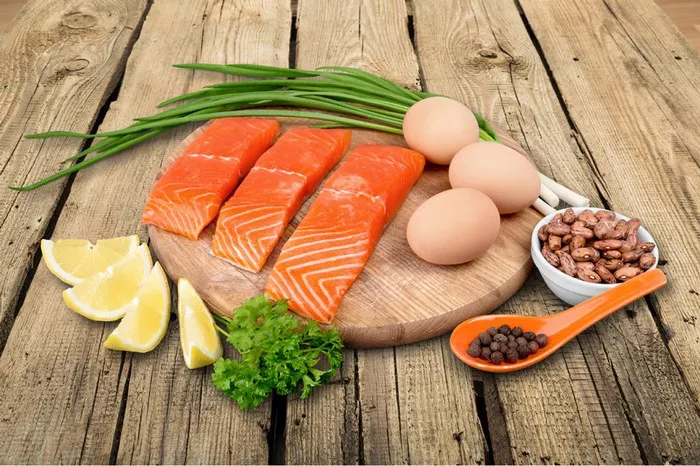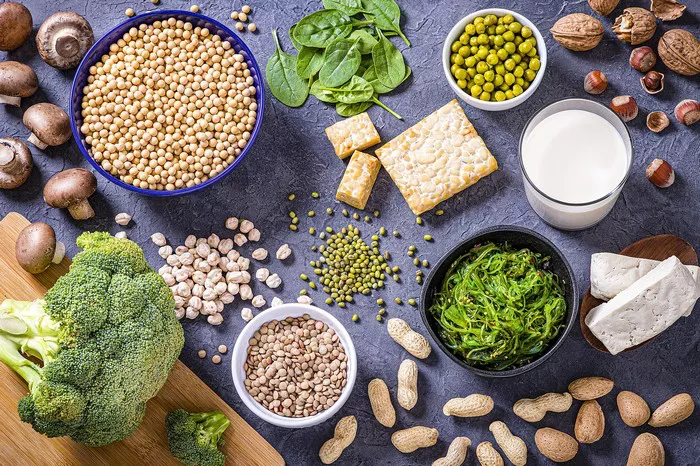Gaining muscle is not just about lifting weights—it also involves a strategic intake of nutrients, particularly proteins and carbohydrates. These macronutrients play crucial roles in energy provision, muscle recovery, and growth. This comprehensive article will explore the importance of protein and carbohydrates in muscle gain, how much you should consume, and the best ways to include these nutrients in your diet.
The Role of Protein in Muscle Growth
Protein is often heralded as the building block of muscle. It is composed of amino acids, which are essential for various bodily functions, including the repair and growth of muscle fibers. When you engage in resistance training or weight lifting, small tears occur in the muscle fibers. Protein aids in the repair and growth of these fibers, making them larger and stronger over time.
Optimal Protein Intake for Muscle Gain
To maximize muscle gain, the amount of protein you need depends on various factors including your age, sex, weight, and level of physical activity. The general recommendation for those looking to build muscle is to consume between 1.6 and 2.2 grams of protein per kilogram of body weight per day. For a person weighing 70 kilograms (about 154 pounds), this translates to approximately 112 to 154 grams of protein daily.
High-quality proteins that contain all essential amino acids are particularly effective for muscle gain. These include:
1. Meat (beef, chicken, turkey)
2. Fish (salmon, tuna)
3. Dairy (milk, cheese, yogurt)
4. Eggs
5. Plant-based sources such as quinoa, soy products, and legumes
The Importance of Carbohydrates for Energy and Recovery
While protein’s role in muscle building is well-known, carbohydrates are equally important. They are the body’s primary source of energy during high-intensity workouts. Consuming adequate carbohydrates ensures that you have enough energy to perform exercises and also aids in recovery.
How Carbohydrates Support Muscle Gain
Carbohydrates help replenish glycogen stores that are depleted during a workout. Glycogen is the stored form of glucose in muscles and the liver, used predominantly during prolonged physical activity. If these stores are not replenished, muscle recovery and growth can be compromised.
The recommendation for carbohydrate intake for muscle gain is generally between 3 to 7 grams per kilogram of body weight, depending on the intensity and duration of the exercise. For someone weighing 70 kilograms, this means anywhere from 210 to 490 grams of carbohydrates per day.
Good sources of carbohydrates include:
1. Whole grains (brown rice, whole wheat pasta)
2. Fruits (bananas, apples, berries)
3. Vegetables (sweet potatoes, carrots, beets)
4. Legumes (beans, lentils)
Balancing Macronutrients for Optimal Muscle Growth
Balancing the intake of proteins and carbohydrates is critical for effective muscle gain. A diet that skews too heavily in favor of one macronutrient over the other can lead to suboptimal results.
Creating a Balanced Diet
A balanced diet for muscle gain should include a mix of protein, carbohydrates, and fats to support overall health and physical performance. Fats should not be neglected as they play a vital role in hormone production, including testosterone, which helps in muscle growth.
A typical meal plan might look something like:
Breakfast: Oatmeal with whey protein, almonds, and berries
Lunch: Grilled chicken breast, quinoa, and a large serving of mixed vegetables
Dinner: Salmon, sweet potato, and steamed broccoli
Snacks: Greek yogurt, fruit, or a handful of nuts
Supplements for Muscle Gain
While getting most of your nutrients from whole foods is ideal, supplements can also play a role in muscle gain, particularly if you find it difficult to meet your protein and carbohydrate requirements through diet alone.
Protein Powders and Mass Gainers
Protein powders, such as whey, casein, or plant-based options, can help boost your protein intake. Mass gainers can be useful for those struggling to consume enough calories and carbohydrates through regular meals.
Creatine
Creatine is another supplement that can enhance muscle gain by increasing strength and power output during workouts. It helps in the regeneration of ATP, the energy currency of the cell, which is crucial during high-intensity training.
Practical Tips for Incorporating Protein and Carbohydrates into Your Diet
Plan Your Meals: Prepare your meals ahead of time to ensure you are consuming enough protein and carbohydrates throughout the day.
Post-Workout Nutrition: After exercising, aim to consume a mix of protein and carbohydrates to aid in recovery. A protein shake with a banana is a good example.
Stay Hydrated: Water plays a key role in nutrient transport and muscle function, so it’s essential to stay well-hydrated.
Conclusion
To effectively gain muscle, an understanding of the roles and proper balance of protein and carbohydrates is essential. Tailoring your diet to meet these nutritional needs while aligning with your training regimen will maximize your muscle growth. Remember, consistency in both your diet and workout routine is the key to achieving and maintaining muscle gain.
[inline_related_posts title=”You Might Be Interested In” title_align=”left” style=”list” number=”6″ align=”none” ids=”8483,8382,8379″ by=”categories” orderby=”rand” order=”DESC” hide_thumb=”no” thumb_right=”no” views=”no” date=”yes” grid_columns=”2″ post_type=”” tax=””]































